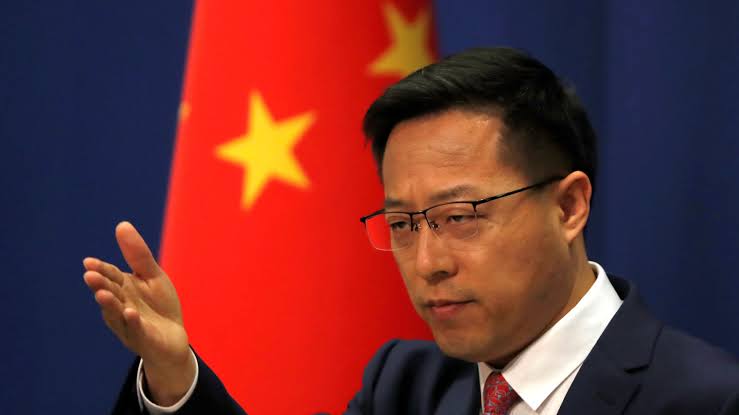China on Monday said it would impose visa restrictions on U.S. citizens as tensions rise over Hong Kong’s autonomy, state media reported.
SEE ALSO: 20 Soldiers killed in Violent Clash Between Indian and Chinese Troops
A Chinese Foreign Ministry spokesperson said Beijing would impose visa restrictions against Americans with egregious conduct.
The move was in response to Washington’s earlier announcement on visa curbs on Chinese officials believed to be responsible for undermining human rights and fundamental freedoms in Hong Kong.
However, the development was unfolding as China prepares to approve a controversial law concerning national security in Hong Kong, a semi-autonomous Chinese territory.
The law, which would curb political protest and dissent in Hong Kong, is pending approval by the National People’s Congress Standing Committee, a top legislative body.
According to the state-run Xinhua News Agency, the Council of Chairpersons, a group of 16 senior lawmakers, heard a report on the draft law.
The council submitted the draft for review and possible vote by the standing committee, which could approve the law by Tuesday, at the end of a three-day session.
The national security law targets secession, subversion, terrorism and collusion with foreign forces in Hong Kong.
However, critics said its purpose was to quash dissent in the financial hub, which had been roiled by protests for some years.
The South China Morning Post quoted anonymous sources as saying the law would carry a maximum sentence of life imprisonment. However, the draft had yet to be seen by Hong Kong residents and even lawmakers.
The secrecy surrounding the law had prompted criticism from pro-democracy activists.
Meanwhile, the Hong Kong Bar Association has called the law unconstitutional.
A previous attempt by Hong Kong leaders to impose national security legislation failed in 2003 after thousands of Hong Kong residents protested against it.
This time, Beijing circumvented Hong Kong’s legislature when the National People’s Congress in May passed a resolution empowering the standing committee to introduce national security legislation directly into Hong Kong’s Basic Law.
The legislation is expected to be approved before July 1, which marks the 23rd anniversary of Britain’s handover of Hong Kong to China.
The law would also see the establishment of mainland Chinese security agencies in Hong Kong.
The city’s Chief Executive, who must answer to Beijing, would be empowered to decide which judges could hear trials for state security cases.
The U.S. has threatened sanctions against Chinese officials and against foreign financial institutions conducting transactions with them.
On Thursday, the U.S. Senate passed the Hong Kong Autonomy Act, which calls for sanctions against individuals found to undermine the city’s autonomy from China. The legislation is set to move to the House of Representatives.
Hong Kong is guaranteed a certain degree of autonomy from mainland China until 2047 under the “one country, two systems” agreement reached by China and Britain in 1997.




 Premier League
Premier League